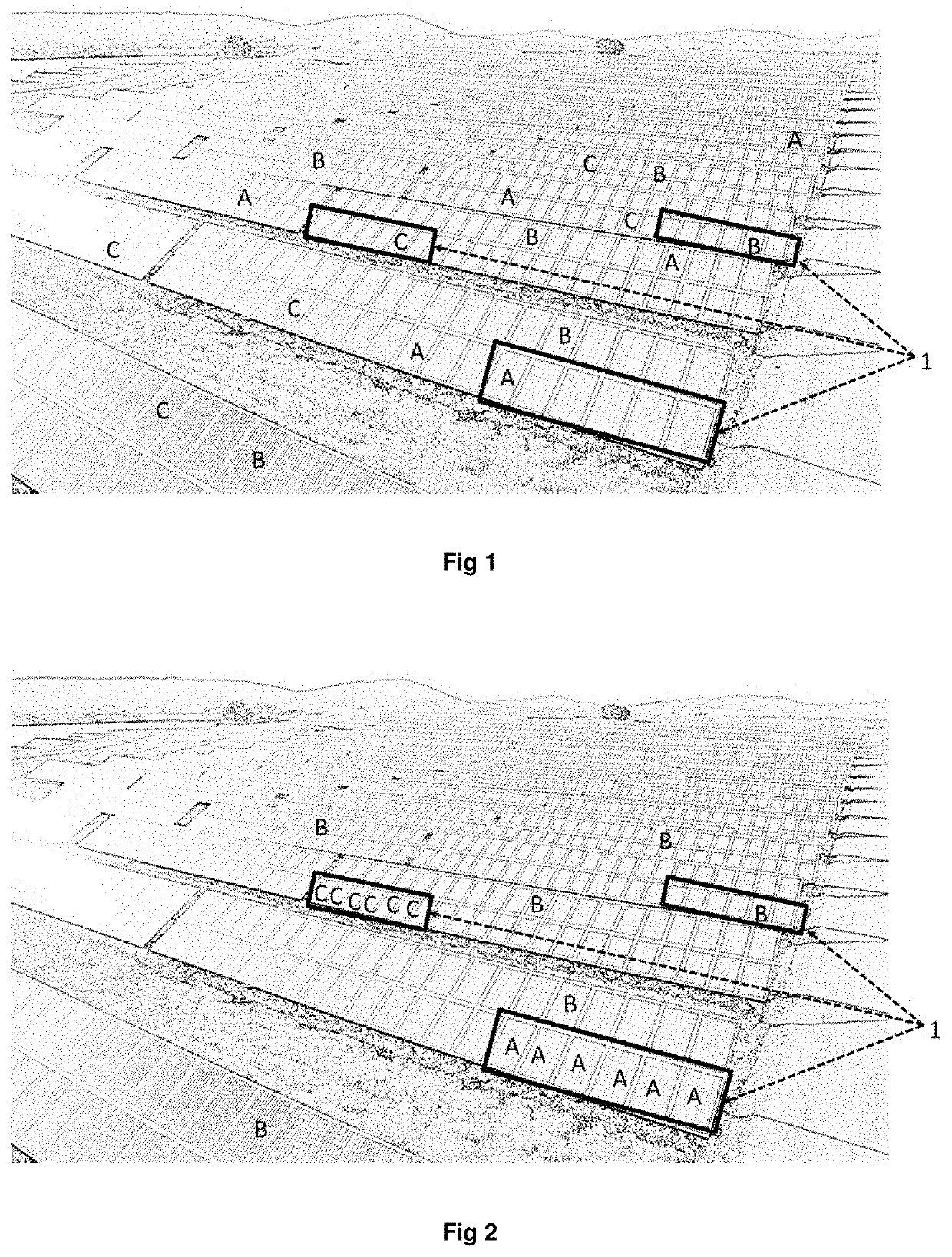Method for optimizing the power enhancement of photovoltaic solar plants using smart preventive and predictive maintenance
a technology of solar power enhancement and predictive maintenance, applied in the field of renewable energy, can solve the problems of high or low loss of performance, low efficiency of solar power generation, and high failure risk of solar power generation, and achieve the effect of reducing the investment in repowering and worse performan
- Summary
- Abstract
- Description
- Claims
- Application Information
AI Technical Summary
Benefits of technology
Problems solved by technology
Method used
Image
Examples
Embodiment Construction
[0031]In one possible, but non-exclusive embodiment, a 10 MWp, ground-mounted solar photovoltaic power plant is formed by 40.000 modules of 250 Wp each, distributed in 1,000 strings of 40 series-connected modules each.
[0032]Through an aerial thermography inspection that took place as part of the smart annual predictive and preventive maintenance, the following failed modules were detected:[0033]400 modules with type A failures (irreversible).[0034]240 modules with type B failures (reversible).[0035]160 modules with type C failures, 80 of which lost half their power (thus staying at 125 Wp), and the remaining 80 lost one fifth of their original power (thus staying at 200 Wp).
[0036]With the repowering method, in this embodiment, the 400 type A modules are substituted for new generation modules, of 300 Wp each, and are grouped in 10 strings of 40 series-connected modules each.
[0037]The 240 type B modules are repaired, gain their original power back and are placed at the same places the...
PUM
 Login to View More
Login to View More Abstract
Description
Claims
Application Information
 Login to View More
Login to View More - R&D
- Intellectual Property
- Life Sciences
- Materials
- Tech Scout
- Unparalleled Data Quality
- Higher Quality Content
- 60% Fewer Hallucinations
Browse by: Latest US Patents, China's latest patents, Technical Efficacy Thesaurus, Application Domain, Technology Topic, Popular Technical Reports.
© 2025 PatSnap. All rights reserved.Legal|Privacy policy|Modern Slavery Act Transparency Statement|Sitemap|About US| Contact US: help@patsnap.com

